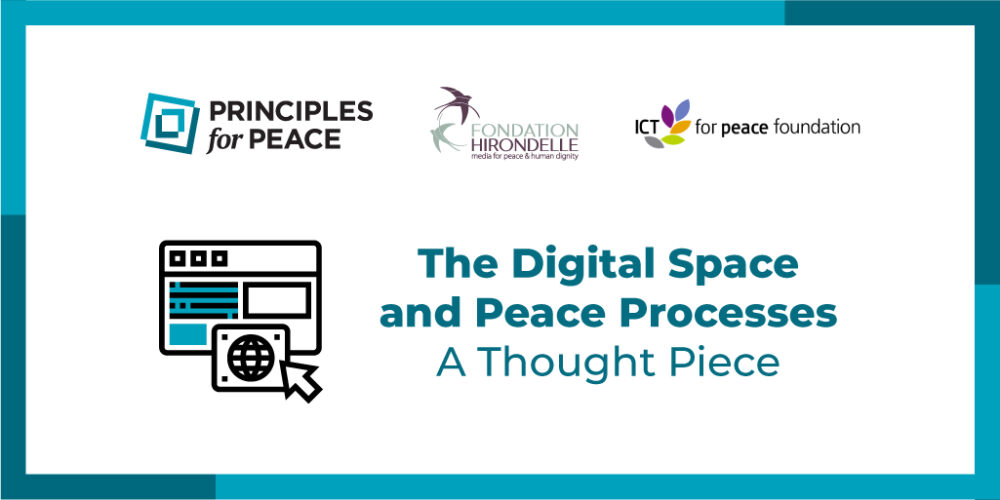Digital spaces bring both risks and opportunities to peace processes around the globe. We publish above a thought piece on this very contemporary matter, by Dr. Lisa Schirch, from the University of Notre Dame / Toda Peace Institute. This brief is a result of a series of interviews and a workshop organised by Principles for Peace, with Fondation Hirondelle and ICT4PeaceFoundation.
This paper begins by describing hybrid information ecosystems and their role in sustained peace processes. Public interest news media is essential for democratic decision-making and successful peace processes. Digital media interacts with legacy media, such as radio, television, and newspapers. Ultimately, solutions require supporting both online and offline public interest news media.
Next the paper maps digital risks. Both state and non-state political actors are weaponizing tech platforms which by their very design tend to amplify divisive and antagonistic content. The digital space can dramatically increase risks by enabling the rapid spread of false information aimed at undermining an election or referendum. Digital risks likely outweigh the current contributions of the digital space to peace, as illustrated in a variety of case studies in this paper.
This brief then reviews how digital tools and spaces can contribute to sustained public peace processes. This section explores conflict analysis, information ecosystem analysis, planning interventions, and a review of the types of digital tech tools and approaches useful for peace processes. New digital forms of communication can scale public inclusion and improve efficiencies in peace processes. Digital spaces can transform how people share information and communicate with one another. Digital spaces can offer more inclusive and equitable avenues for participation and can incentivize the development of policy options.
The final section of the paper identifies trade-offs and dilemmas, practical strategies for analysing and intervening in digital spaces, and policy recommendations to governments, tech companies and civil society groups on a variety of themes.

